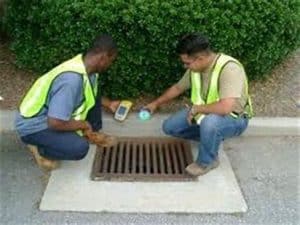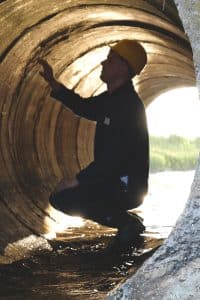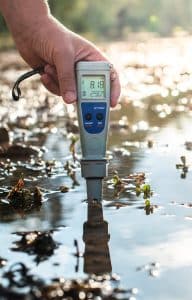Stormwater Inspector Certification in Texas
Importance of Stormwater Inspection in Texas
Stormwater management is of utmost importance in Texas to protect water quality and prevent pollution. Texas is prone to intense rainfall events and flooding, which can lead to a significant amount of stormwater runoff. This runoff, if not properly managed, can carry pollutants such as sediment, oil, chemicals, and debris into nearby water bodies, posing a threat to aquatic life and human health. Stormwater inspection plays a crucial role in identifying potential sources of pollution and ensuring compliance with stormwater regulations.
Stormwater inspections are particularly important in urban areas where there is extensive construction and industrial activity. Construction sites, for example, often have erosion and sediment control measures in place to prevent runoff from carrying sediment into storm drains and water bodies. Inspections help to ensure that these measures are effective and being properly maintained. By identifying and addressing issues early on, stormwater inspectors can help prevent pollution and minimize the impact on water quality.
In addition to protecting water resources, stormwater inspection is essential for maintaining compliance with state and federal regulations. Texas has its own set of stormwater regulations that must be followed by construction sites, industrial facilities, and other regulated entities. Failure to comply with these regulations can result in fines, penalties, and legal consequences. By conducting regular inspections, stormwater inspectors help enforce compliance and ensure that businesses are meeting their environmental obligations.
Stormwater regulations and requirements in Texas
Texas has specific stormwater regulations in place to protect water quality and prevent pollution. These regulations are enforced by the Texas Commission on Environmental Quality (TCEQ) and apply to a wide range of activities, including construction, industrial operations, and municipal separate storm sewer systems (MS4s). Some of the key regulations and requirements include:
- Construction General Permit: Construction sites that disturb one acre or more of land are required to obtain coverage under a Construction General Permit. This permit sets out specific requirements for erosion and sediment control, stormwater management, and pollution prevention measures.
- Multi-Sector General Permit: Industrial facilities, such as manufacturing plants and warehouses, must obtain coverage under the Multi-Sector General Permit. This permit outlines specific requirements for stormwater management, pollution prevention, and monitoring.
- MS4 Permit: Municipalities with populations of 100,000 or more are required to obtain coverage under an MS4 permit. This permit sets out specific requirements for stormwater management, public education and outreach, and pollution prevention.
These regulations aim to reduce the discharge of pollutants into stormwater runoff and protect water quality in Texas. Compliance with these regulations is essential, and stormwater inspectors play a vital role in ensuring that businesses and municipalities are meeting their obligations.
Stormwater inspector certification process
To become a certified stormwater inspector in Texas, individuals must undergo a certification process that demonstrates their knowledge and competency in stormwater management. The process typically involves the following steps:
- Eligibility: Before applying for certification, individuals must meet certain eligibility requirements. These requirements may include a minimum level of education or relevant work experience in the environmental field.
- Training: Once eligible, individuals must complete a training course. These courses cover topics such as stormwater regulations, erosion and sediment control, best management practices, and inspection techniques. Training can be completed through in-person workshops, online courses, or a combination of both. There are several companies that offer this certification training such as TheStormwaterTrainingCenter.
- Exam: After completing the training course, individuals must pass a certification exam administered by the instructor. The exam assesses their knowledge and understanding of stormwater management principles, regulations, and inspection procedures. Successful completion of the exam is required to obtain certification.
- Certification: Upon passing the exam, individuals are awarded the Certified Stormwater Inspector (CSI) designation. This certification is valid for a certain period, typically five (5) years, after which individuals must undergo recertification to maintain their credentials.
The certification process ensures that stormwater inspectors in Texas have the necessary knowledge and skills to effectively assess and manage stormwater systems. It also provides individuals with a recognized credential that demonstrates their expertise in the field.
 Responsibilities of a Certified Stormwater Inspector
Responsibilities of a Certified Stormwater Inspector
Certified stormwater inspectors in Texas have a wide range of responsibilities related to stormwater management and compliance. Some of the key responsibilities include:
- Conducting inspections: Stormwater inspectors are responsible for conducting regular inspections of construction sites, industrial facilities, and other regulated entities to ensure compliance with stormwater regulations. Inspections involve assessing erosion and sediment control measures, inspecting stormwater management practices, and checking for potential sources of pollution.
- Documenting findings: Inspectors must document their findings during inspections, including any violations or non-compliance issues. They are responsible for accurately recording observations, taking photographs, and maintaining detailed inspection reports. These records serve as evidence of compliance or can be used for enforcement purposes if violations are identified.
- Providing guidance and support: Stormwater inspectors play a crucial role in providing guidance and support to regulated entities. They help businesses understand and comply with stormwater regulations by offering advice on best management practices, pollution prevention measures, and compliance strategies. Inspectors may also provide training or educational materials to promote awareness and understanding of stormwater management requirements.
- Enforcement and compliance: Inspectors are responsible for enforcing stormwater regulations and ensuring compliance. This may involve issuing warnings, notices of violation, or even fines for non-compliance. Inspectors work closely with businesses and municipalities to address any issues identified during inspections and ensure that corrective actions are taken.
- Public education and outreach: Stormwater inspectors often engage in public education and outreach activities to raise awareness about stormwater management and pollution prevention. They may participate in community events, give presentations, or distribute educational materials to promote responsible stormwater practices and encourage public participation in protecting water resources.
The responsibilities of a certified stormwater inspector require a combination of technical knowledge, communication skills, and attention to detail. By fulfilling these responsibilities, inspectors contribute to maintaining water quality and protecting the environment in Texas.
Common Issues and Challenges Faced by Stormwater Inspectors in Texas
Stormwater inspectors in Texas face various challenges and issues in carrying out their responsibilities. Some of the common challenges include:
- Compliance monitoring: Ensuring compliance with stormwater regulations can be challenging, especially on large construction sites or in industrial facilities with complex operations. Inspectors must carefully monitor activities, review documentation, and assess control measures to identify any potential violations.
- Weather conditions: Texas is known for its unpredictable weather, including heavy rainfall and flooding events. Inspectors must be prepared to work in adverse weather conditions and adapt their inspection schedules accordingly. Extreme weather can also pose challenges for erosion and sediment control measures, requiring inspectors to closely monitor their effectiveness.
- Limited resources: Inspectors often face resource constraints, including limited staffing, time, and budget. These limitations can make it difficult to conduct comprehensive and frequent inspections. Inspectors must prioritize their efforts and focus on areas with the highest risk of non-compliance or environmental impact.
- Communication and collaboration: Stormwater inspectors work with a wide range of stakeholders, including businesses,
 government agencies, and the public. Effective communication and collaboration are essential to ensure compliance, address issues, and promote responsible stormwater practices. Inspectors must be skilled in building relationships and facilitating dialogue between different parties.
government agencies, and the public. Effective communication and collaboration are essential to ensure compliance, address issues, and promote responsible stormwater practices. Inspectors must be skilled in building relationships and facilitating dialogue between different parties. - Keeping up with regulations: Stormwater regulations and requirements can change over time as new research, technologies, and best practices emerge. Inspectors must stay updated on the latest regulations and ensure that their knowledge and skills remain current. Continuing education and professional development opportunities are crucial for staying informed and maintaining competence.
Despite these challenges, stormwater inspectors continue to play a vital role in protecting water quality and preventing pollution in Texas. Their dedication and expertise make a significant difference in maintaining a clean and sustainable environment.
Best practices for effective stormwater inspections
To conduct effective stormwater inspections in Texas, stormwater inspectors should follow best practices that enhance their ability to identify and address compliance issues. Some of the key best practices include:
- Pre-inspection planning: Before conducting an inspection, inspectors should familiarize themselves with the site or facility being inspected. They should review relevant documents, such as stormwater pollution prevention plans, permits, and inspection records. Pre-inspection planning helps inspectors understand the specific requirements and potential risks associated with the site.
- Thorough site assessment: Inspectors should conduct a thorough assessment of the site or facility, paying attention to potential sources of pollution, erosion and sediment control measures, and stormwater management practices. They should inspect all areas, including construction areas, material storage areas, equipment staging areas, and drainage systems.

- Documentation and record-keeping: Inspectors should accurately document their findings during inspections, including observations, photographs, and inspection reports. Detailed documentation serves as evidence of compliance or non-compliance and can be used for enforcement purposes if necessary. Inspectors should also maintain organized records for future reference and follow-up inspections.
- Effective communication: Inspectors should communicate clearly and effectively with regulated entities, explaining any non-compliance issues and providing guidance on corrective actions. They should also maintain open lines of communication with other stakeholders, such as government agencies, to ensure coordination and collaboration in addressing compliance issues.
- Continuing education and professional development: To stay updated on the latest regulations, best practices, and industry developments, inspectors should actively participate in continuing education activities. This includes attending workshops, webinars, conferences, and other training opportunities offered by the TSA and other relevant organizations. Continuing education ensures that inspectors have the knowledge and skills needed to carry out their responsibilities effectively.
Following these best practices helps stormwater inspectors in Texas carry out their inspections in a thorough and efficient manner. By adhering to these practices, inspectors can contribute to maintaining water quality and protecting the environment.
Conclusion: The importance of certified stormwater inspectors in maintaining a clean and sustainable environment in Texas
Certified stormwater inspectors play a vital role in maintaining water quality and preventing pollution in Texas. By conducting regular inspections, they help ensure compliance with stormwater regulations and identify potential sources of pollution. Their expertise in erosion and sediment control, stormwater management practices, and enforcement of regulations is essential for protecting water resources and minimizing the impact of stormwater runoff.
Becoming a certified stormwater inspector in Texas offers exciting career opportunities in environmental consulting firms, government agencies, and construction companies. By pursuing stormwater inspector certification, individuals can make a positive impact on the environment while also contributing to the sustainable development of Texas.
If you have a passion for environmental protection and are ready to make a difference, consider pursuing stormwater inspector certification in Texas. By obtaining the necessary knowledge and skills, you can become an integral part of efforts to maintain a clean and sustainable environment in the Lone Star State.
